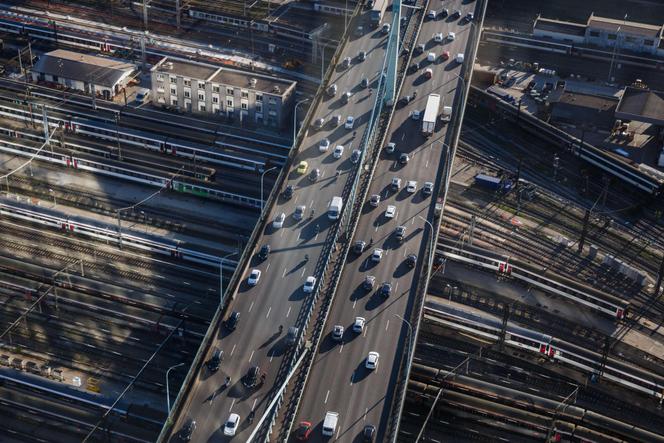


The French government and Paris city officials were at loggerheads on Thursday, December 7, over a flagship plan to cut the speed limit on the capital's congested ring road after the 2024 Olympic Games.
The mayor's office said last month that the restrictions aimed at reducing pollution and noise from the Boulevard Peripherique – one of Europe's busiest roads – would come into force a few weeks after the Games end.
The speed limit would be lowered to 50 kilometers per hour on the ring road, from 70 km/h currently. But on Thursday, Transport Minister Clément Beaune rejected the initiative, saying it was "not a good idea in the short term." Although the ring road "is managed by the city of Paris," a change in the speed limit "obviously requires approval from the state," said Beaune.
But in a fresh twist only hours later, city hall stood its ground, with deputy mayor Emmanuel Grégoire telling reporters that the capital's administration was within its rights to change speed limits for security or environmental reasons. "I confirm that we will lower the speed limit," he said.
The central government had jurisdiction only over a small stretch of the ring road because of the proximity of the defense ministry in the area, he said. Beaune's objection had "no basis," he said, and was "purely political".
The issue is the latest example of tensions between the centrist government of President Emmanuel Macron and the city hall under Socialist Mayor Anne Hidalgo just over half a year before the Games get underway.
The 35-kilometer Péripherique – widely known as the "Périph'" – is used by around 1.2 million drivers every day, most of them from the Ile-de-France region that includes Paris. Around 80% of vehicles on the road have just their driver and no passengers.
Under city hall's plan, one lane of the ring road in each direction would be reserved for vehicles carrying two or more passengers, an idea that Beaune said he was open to. "I think the reserved lane is a good thing," he said, but if at the same time the speed limit decreased to 50 km/h, "I think you're going to drive people crazy."
The deputy mayor in charge of transport, David Belliard of France's Greens, reacted with fury to Beaune's comments, saying that "once again, the government chooses to make a petty controversy and gives in to the pressure of pro-car lobbies."
Paris transport is proving a contentious issue ahead of the Games. City hall this week urged the wider Ile-de-France region, which includes Paris and is run by the right-wing Republicans, to abandon a plan to nearly double metro fares during the Olympics.
